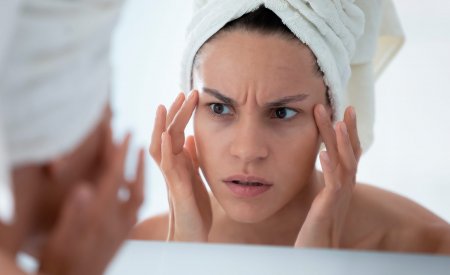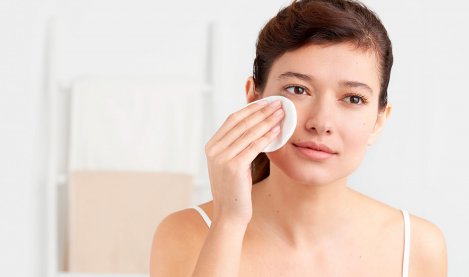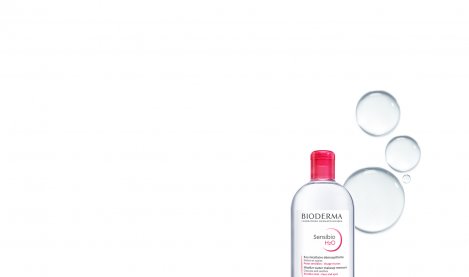Increased skin sensitivity causes - Our top five
Makeup
Some cosmetics contain ingredients that are harmful for the long term health of your skin. Heavy mineral oils and silicones can obstruct the skin’s pores causing acne or breakouts, so it’s important to keep an eye on product composition for both makeup and skincare. Removing makeup every night is very important, as long as the method used respects the skin’s balance.
Pollution
This is a very real public health problem recognised by the World Health Organization. Indoors and outdoors, the air is full of ambient pollutants like dust, fine and ultra-fine particles including exhaust gas, combustion heating fumes and cigarette smoke. Heavy metals including lead, mercury, arsenic and gaseous pollutants including ozone, nitrogen dioxide, and carbon monoxide cause havoc on our environment and our skin. Also harmful are volatile organic compounds that are exuded by plastic, carpet, paint and furniture. Pollen is also one of the most common and highly allergenic environmental factors that has been proven to have a direct impact on our skin.
Impurities
These come from the skin’s own metabolism. Sweat, dead skin cells and sebum are unavoidable natural impurities that can alter the skin’s normal biological functioning. It is therefore essential to properly cleanse the skin without further compromising its balance.
Tap water
Tap water contains traces of bacteria, calcium deposits and other residues that are potentially irritating. Specific water composition can also vary according to location. It can therefore provoke skin irritations and reactions, especially if the skin's barrier is weakened. This should be taken into account when choosing a face cleanser for sensitive skin.
Mask-wearing
The Covid-19 pandemic introduced a new irritant for skin. Wearing a mask is obviously essential for protecting ourselves and others from contagion, but it frequently produces new skin problems. ‘Maskne’ refers to acne that is caused by wearing a mask, with spots located on the bottom half of the face. People with sensitive skin will notice other effects including irritation, redness, itching, stinging and sometimes even flare-ups of eczema and rosacea. In this instance, washing your face is absolutely critical to restoring skin’s health.



